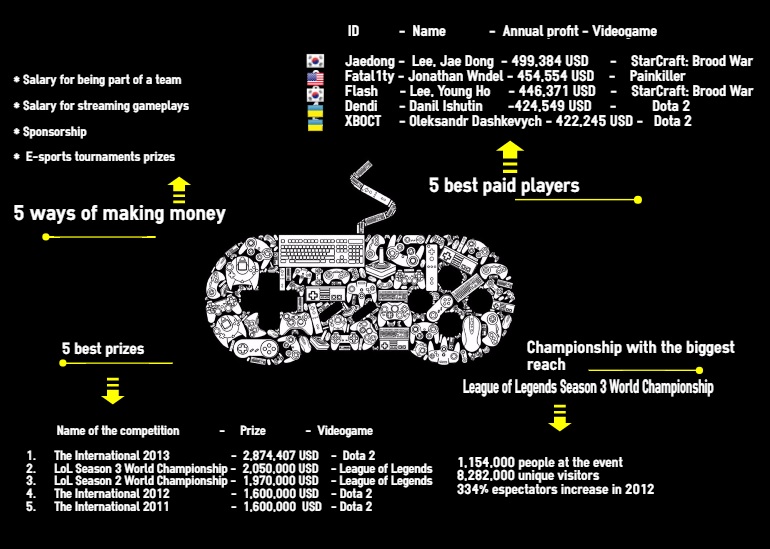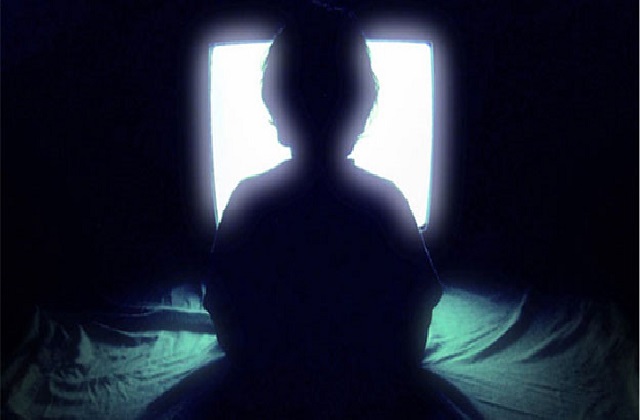Originally published at Prodavinci.com
In 2010, a couple of South Koreans spent more than 12 hours in one of the pc bangs (internet coffee shops for gamers) that exist in Seoul, playing a videogame called Prius Online. In the fantasy game, they fed a virtual baby, called Anima, while their real daughter, flesh and blood but who was never named, starved to death.
Kim Yoo-Chul, 41, and Choi Mi-Sun, 25, who met at the same internet coffee shop, 2 years before, are now part of the many tragedies related to videogames addiction that have turned on all the alarms and are beginning to be treated as a national public health issue in South Korea.
More than 100 clinical health centers in the country now have special units to treat videogame addiction. They use techniques similar to the ones used once for drug and alcohol dependence. The most common treatment includes a rehabilitation process of around 2 weeks, followed by group meetings in which patients share experiences and think over the negative effects of the excessive hours of videogames playing in their lives.
At the Gungjo National Hospital, south of Seoul, a psychiatric unit run by Lee Yei Wong, treats internet addiction. A procedure of transcranial electromagnetic stimulation is used to relieve brain zones that have been affected by long hours of videogame playing. Doctor Lee Yei Wong explains that “being seated in a chair for a long amount of hours can produce a displacement of the dorsal cord and also form blood clots”.
Doctor Timothy Fong, Director of the Conduct and Addiction Clinic of UCLA, says videogames can derive in a true addiction. “People keep playing even if there are negative consequences, as it is with drugs and alcohol”. He also states that the average age of the clinic’s patients is 40 years old.
By the end of 2010, a study made by Doctor Douglas Gentile, from Iowa State University, concluded that 1 in 10 gamers researched in the US presented signs of addiction to videogames and may be considered as a “pathological player”. The study establishes that, in order to be considered a pathological player, a person must experience damage in some area of his or her life (social, professional, psychological), as a consequence of the inability to stop playing.
Furthermore, a study made by Daria Kuss and Mark Grffiths, from Nottingham Trent University, estimates that nearly 10% of players around the world present symptoms that are declared by the World Health Organization as addiction indicators. Some of the most recurring signs are: anxiety for playing video games, difficulty to stop playing willingly, and depravation of other activities.
It’s not a game, it’s business
The place is dark. It’s slightly illuminated by hundreds of flat screens aligned in front of black leather chairs. Each desktop from the PC Bang has a keyboard, web camera, and an 8 buttons mouse. In a corner of the big room there is an expendable machine for snacks and beverages. On another corner, there’s a door that leads to a bathroom. PC Bangs have become a place that reunites gamers. And even though many of them have access to video games at their homes, they choose to go to PC Bangs to socialize and drain out stress.
In South Korea, video games have become one of the most popular recreational activities amongst young people. Star Craft, a real time strategy game developed by Blizzard, reported 11 million dollars in earnings worldwide. Out of that total amount, 4.5 million were sells in South Korea. After Star Craft, e-sports first leagues were created in the country and they started being broadcasted on cable television.
Because of the increase of video games competitions, e-sports is now considered a national sport. Two TV channels, Ongamenet and MBC Game, appeared in the market to satisfy the demand for e-sports. These broadcasters are exclusively entitled to transmit video games 24/7. According to the Federal Institute of Video Games, more than 10 million people follow these competitions.
Big companies such as SK Telecom and Samsung sponsor ten professional video games leagues in South Korea. Gamers are between 18 and 19 years old, and they compete desperately to gain rewards and a position as professional players, with which they could earn between 104 and 499 thousand dollars a year.
Yo Hwan-lim is known as SlayerS_BoxerR or Terran Emperor. Inside the gamer community he is the equivalent to Michael Jordan in Basketball, or Usain Bolt in the 100 meters run. He is not just a player, he is a hero. This Star Craft mythical competitor has become a role model for young people in South Korea. He is married with the famous actress and television host Kim Ka Yeoun. She has played many leading roles on different movies, has worked as a model and corporate image for different enterprises, and she also appears in the famous cover of the chocolate “hot brakes”. ABC Australia made a full coverage of this gamer’s cultural phenomena that allows to see inside the life of an e-sports star.
Ocelot, a professional League Of Legends player and also leader of the SK Gaming team, says that in 2011 he realized how influential he was, and therefore, that he should be careful how he expressed with other people. “When I went to Gamescom in 2011, I realized I had to be kinder when playing. A kid in a wheelchair travelled from Paris just to see me and he said I was his idol”, said Ocelot.

With the growing amount of players, the rapid growth of the videogames industry and the constant promotion around this fun activity, South Korean authorities have found quite hard to fight against videogame addiction. The government has thought of an alternative: forbidding minors to play videogames from 12AM to 6AM. But such a measure can hardly have a plausible execution. Another possibility is to copy the Chinese model in which minors can only play videogames using a national identity card. However, young people could still play with fake, borrowed or stolen cards.
South Korea is one of the countries with the biggest technology infrastructure. They have a sophisticated interconnectivity, an excellent optic fiber installation with more than 90% of households currently having a broadband internet connection. South Korea’s Ministry of Culture reported that in 2008 the Videogame industry generated 5 billion in exports. Videogames have also stimulated an informal economy: millions of dollars flow in illegal bets during big tournaments. The domestic videogame market is valued in more than 2 billion dollars. Also, a poll made by the National Agency of Information revealed that 1 in every 10 South Korean teenagers has a significant risk of being addicted to videogames, and 1 in every 20 already suffer the consequences of the addiction. Lee Dong-Hun, professor of psychology at the National University of Pusan, says the situation is “very serious”, and that videogame addiction is not a problem that affects only children, it also affects college students, and even adults. “It is a complicated social issue that won’t be easy to solve”.
Psychological architecture
Nowadays, the videogame industry has provided professional opportunities for new psychology graduates. Many enterprises like Valve and Legacy Interactive are hiring psychologists as consultants, because of their knowledge of the human mind. Psychologists recommend shinning sparks on a screen every 6 seconds, attractive graphics and a system of rewards, which according to Ariella Lehrer, psychologist and designer of games for women “are enough to keep people attention for hours”.
Psychologists’ main task is to research how players experience videogames, in order to establish guidelines and specific goals. To do this, many companies engage in investigations to gather information for the videogame developer team. In Legacy Games, they take players to a place where they can play a videogame that is under development, while psychologists observe and take notes of the players’ reactions and emotions.
There are also consultant firms for psychological game design, that seek to help game developers to make business decisions taking into consideration the psychological impact of the game and its actual possibility of success.
Suki Chai is the clinical psychologist who was in charge of the couple that let their child die of starvation for playing more than 12 hours non-stop. Chai says that if a videogame addicted doesn’t have medical assistance, there is a high chance that the person won’t be able to control the need for videogames.
Choi Mi-Sun was exonerated of the punishment for allowing her daughter to die, because she was pregnant again. Nonetheless, Doctor Suki Chai said she should be treated and monitored by the authorities. But her advice wasn’t taken into consideration. After the case’s closure, Choi Mi-Sun hasn’t been located, and the scientific community is worried about the destiny of the baby she was carrying.


